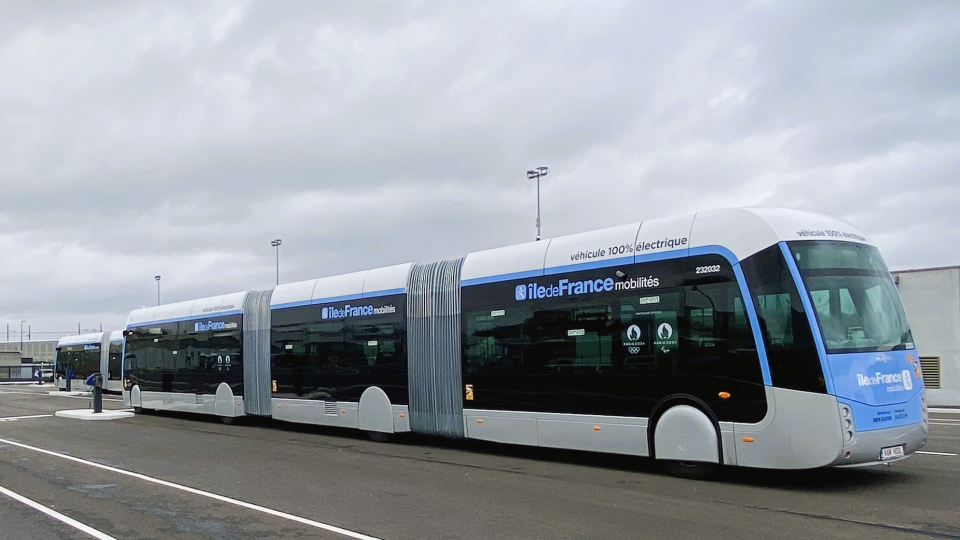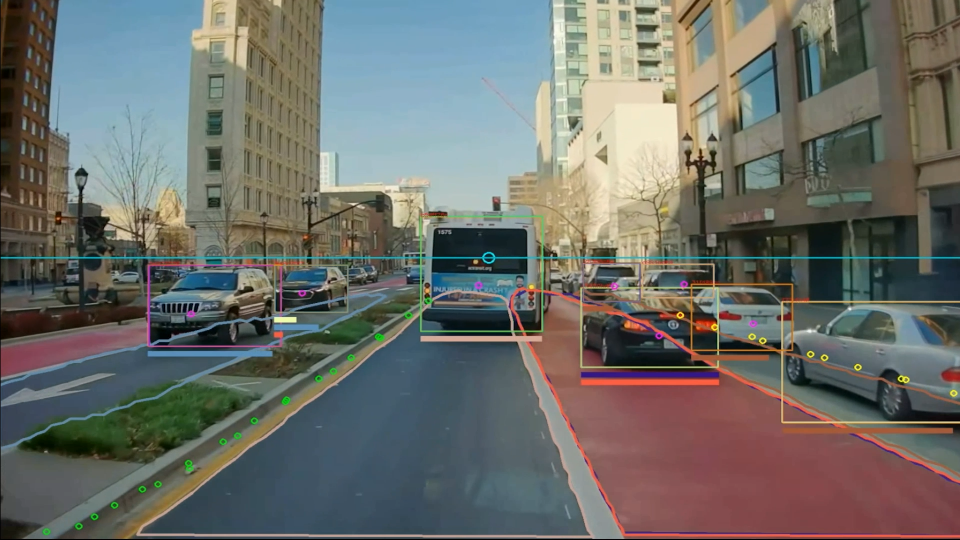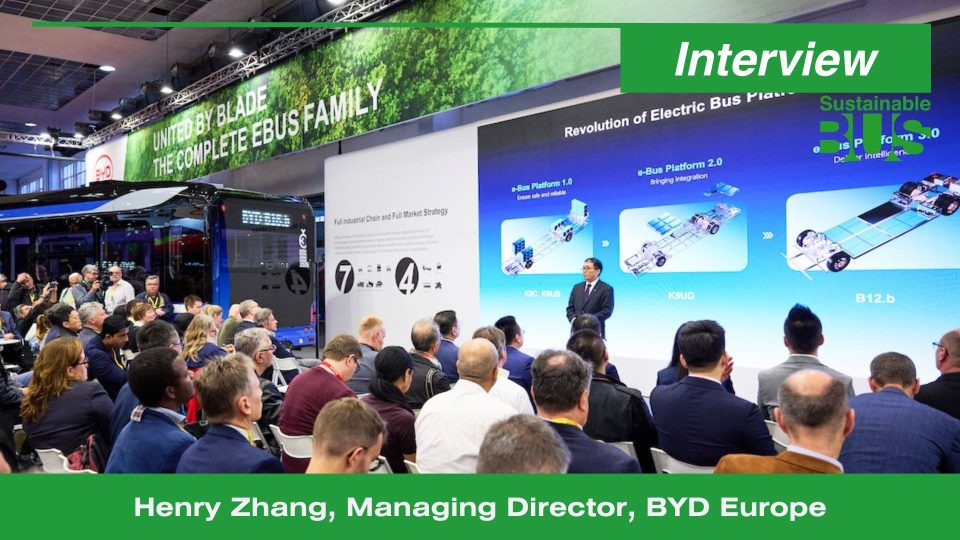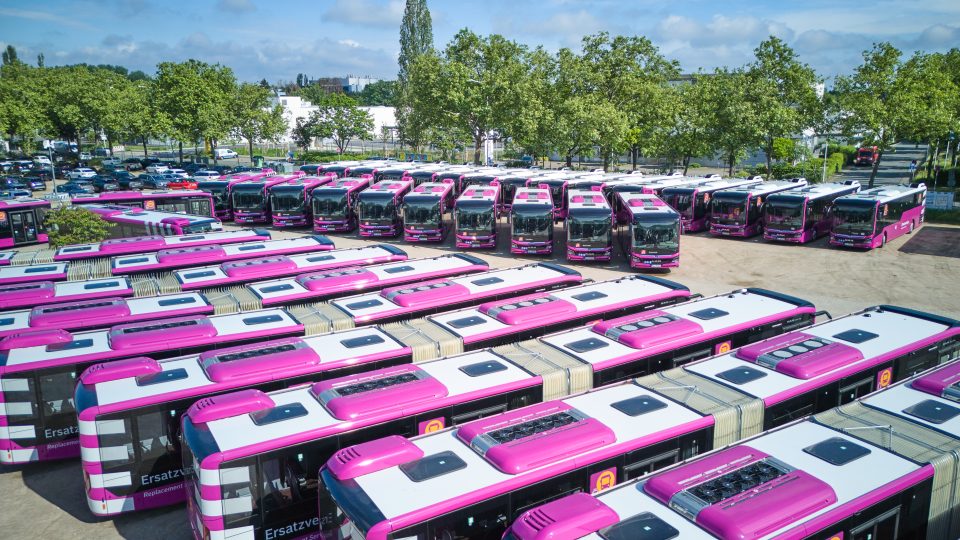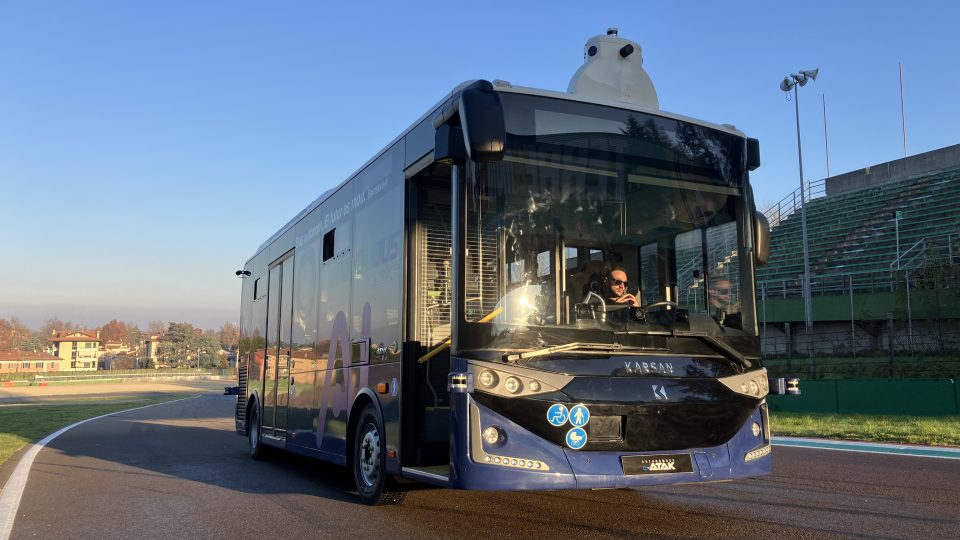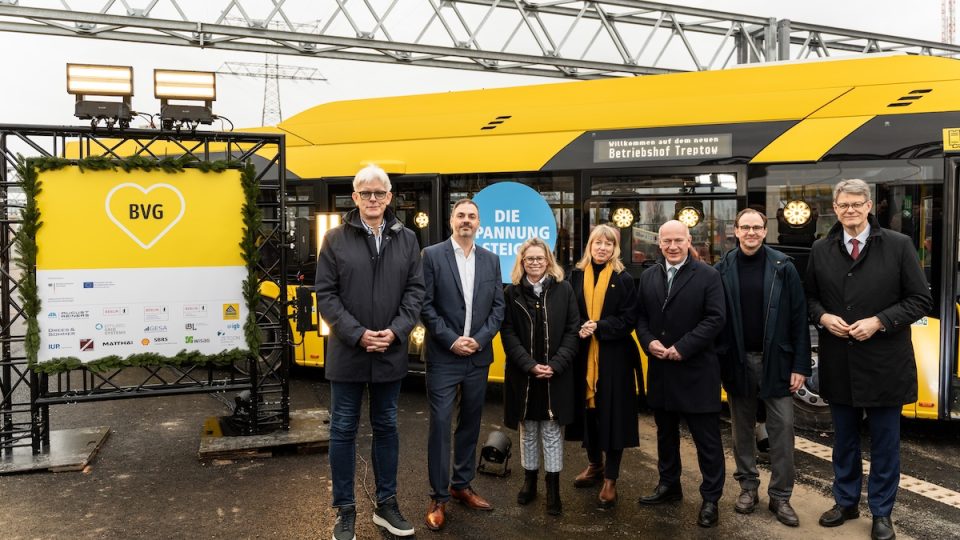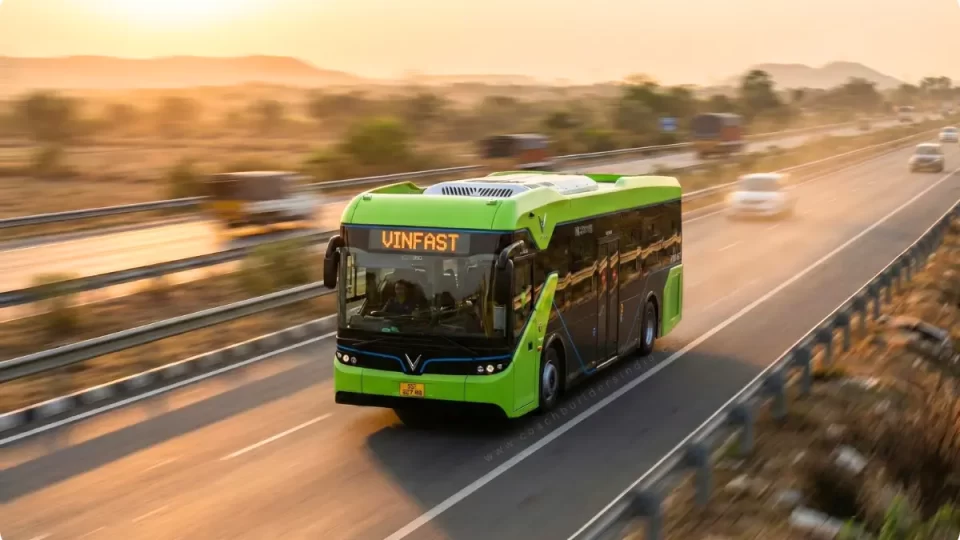First Bus with Hitachi Europe: a partnership to support PTO’s decarbonization plan (starting with 148 e-buses)
First Bus has selected Hitachi Europe as a prime strategic partner for the decarbonisation programme at its flagship Caledonia bus depot in Glasgow. The partnership is expected to support First Bus in its decarbonisation journey, starting with the provision of 148 electric buses over the next 18 months. Up to 300 EV buses are indeed […]
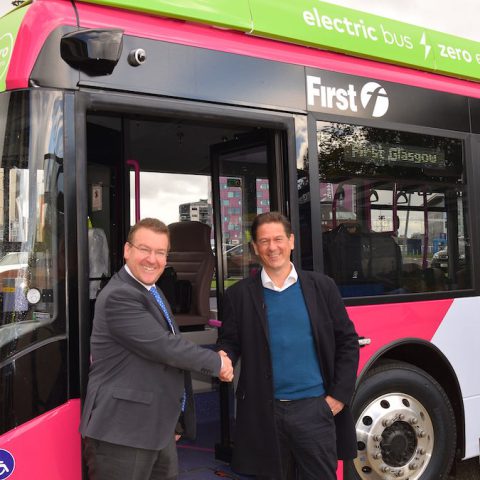
First Bus has selected Hitachi Europe as a prime strategic partner for the decarbonisation programme at its flagship Caledonia bus depot in Glasgow. The partnership is expected to support First Bus in its decarbonisation journey, starting with the provision of 148 electric buses over the next 18 months. Up to 300 EV buses are indeed expected to be hosted in the depot, that is claimed to be UK’s largest EV charging hub.
The partnership will deliver an ‘as a service’ offering including bus batteries for First Glasgow’s electric vehicle (EV) fleet, smart charging software to manage EV charging, and a decarbonisation programme that will explore low carbon energy opportunities, with a view to First Bus eventually being able to generate and use its own electricity.
Hitachi Europe – a principal partner of COP26 and First Bus will also collaborate on a COP26 event ‘Together for our Planet’ that will take place at the Caledonia depot.
First Bus pledged in Spring 2020 that we would only invest in low and zero-emission vehicles from December 2022, with the ambitious commitment of operating a 100% zero-emission fleet by 2035. FirstGroup were also the first UK bus and train operator to commit to achieving net zero emissions by 2050 or earlier.
Hitachi with First Bus: battery as a service in the spotlight
In this initial deployment at the Caledonia depot, Hitachi is providing:
- Battery as a service
- Smart Charging
- Decarbonisation solutions on-site
Hitachi Europe will provide bus batteries for First Glasgow’s electric fleet. The batteries will be available on a subscription basis for the buses based at the Caledonia depot, the company says.
This innovative model guarantees a minimum state of health for each battery, ensuring the bus operator achieves the best possible performance when delivering its services throughout the life of the contract, and will also specify the optimum time to replace each battery.
Hitachi Europe will also provide telematics on the Caledonia depot’s buses and electric charging points. The telematics will provide live status information on each charging point and their processes, enabling remote charging and the ability to tell which vehicles are connected to which charger. This will provide the First Glasgow depot team with vehicles’ real-time information, allowing them to see how long each bus has left to charge until it is fully powered. The software will help ensure that charging demand does not pull too much power from the grid at peak times, helping balance requirements and the costs of electricity.
First Bus and Hitachi Europe will collaboratively design low carbon technology such as solar panels and battery energy storage solutions for the site. There is potential that this aspect of the partnership will eventually lead to First Glasgow generating and consuming its own electricity as well as meeting local community environmental, social, and governance (ESG) needs by delivering zero-carbon charging hubs for other business fleet users, the partners point out.
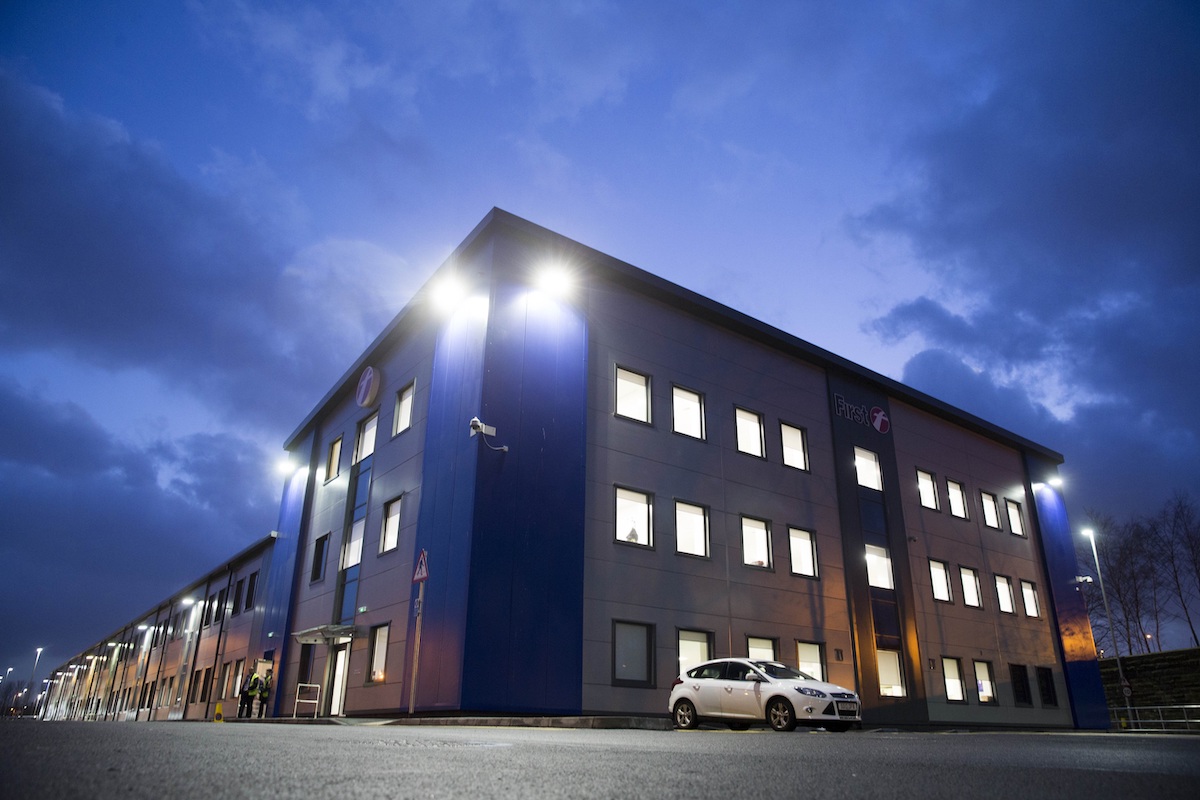
First Bus on a path to zero emissions
Andrew Jarvis, Portfolio Managing Director, First Bus said, “As leaders in sustainable mobility, First Bus is keen to work with suppliers, partners, and stakeholders to support swift and significant changes in the bus market. This innovative and progressive partnership with Hitachi exemplifies that we aren’t just committed to meeting Government guidelines about sustainable energy, but that we’re eager to explore and create greener solutions for the future.”
Ram Ramachander, Chief Commercial Officer, SIB EMEA and Chief Digital Officer, Hitachi Europe, said, “Our partnership with First Bus marks a significant step for Hitachi in our goal to deliver zero carbon solutions to the mobility sector. We are immensely proud to be a part of this important deployment and look forward to helping First Bus deliver full fleet decarbonisation by 2035 and working together on wider sustainable technology innovations.”


